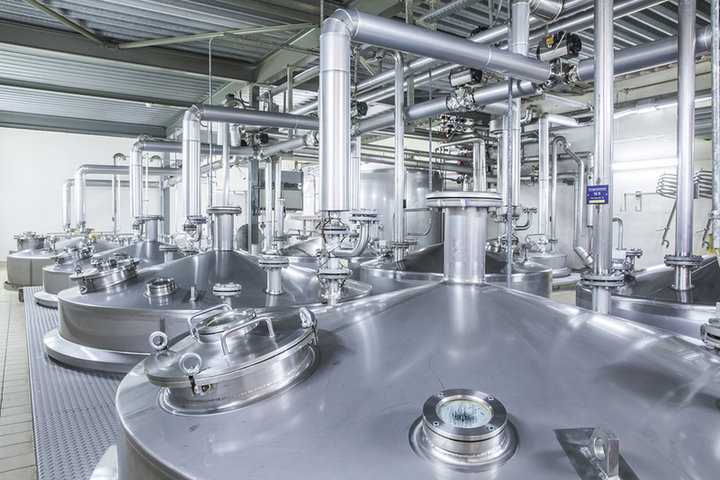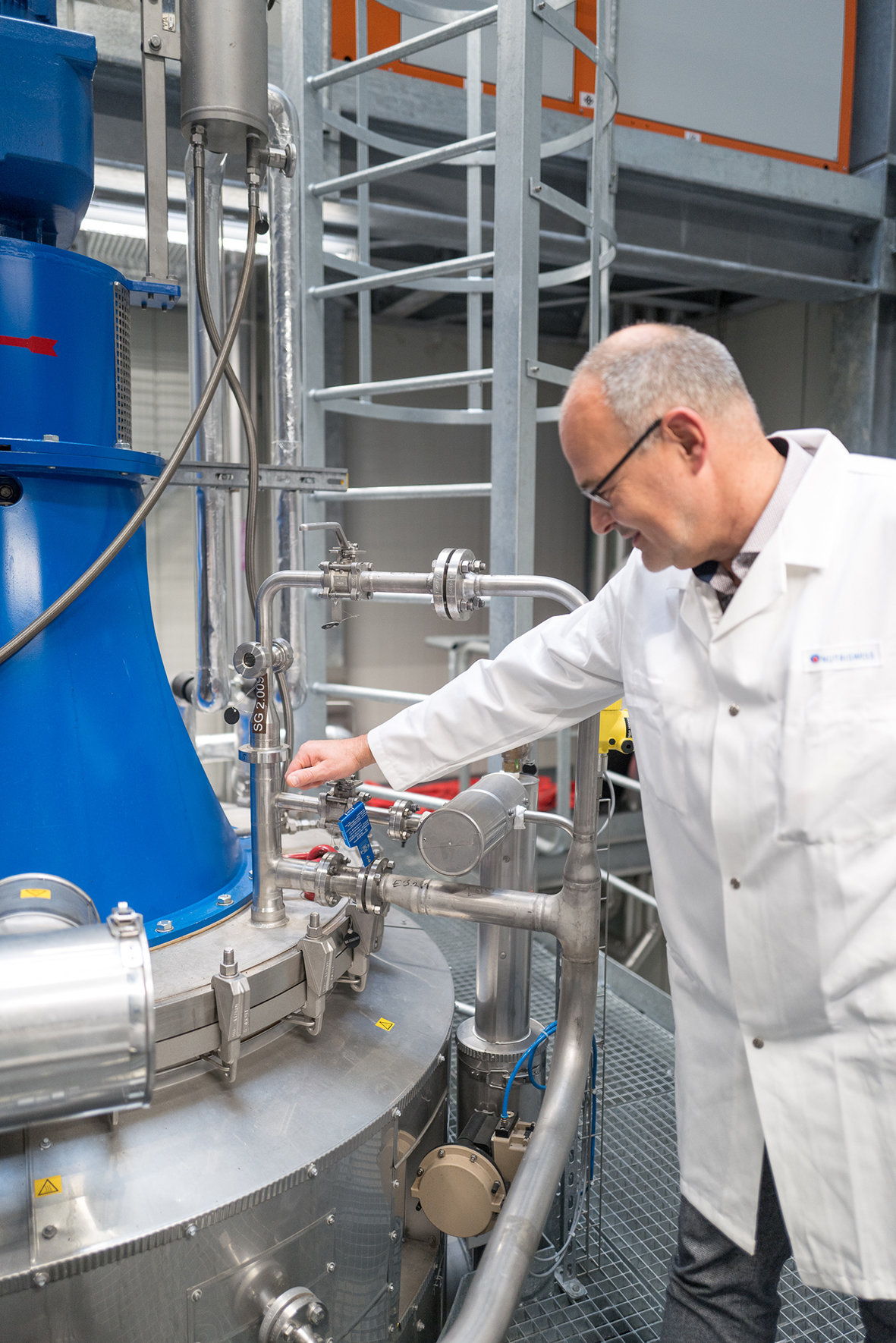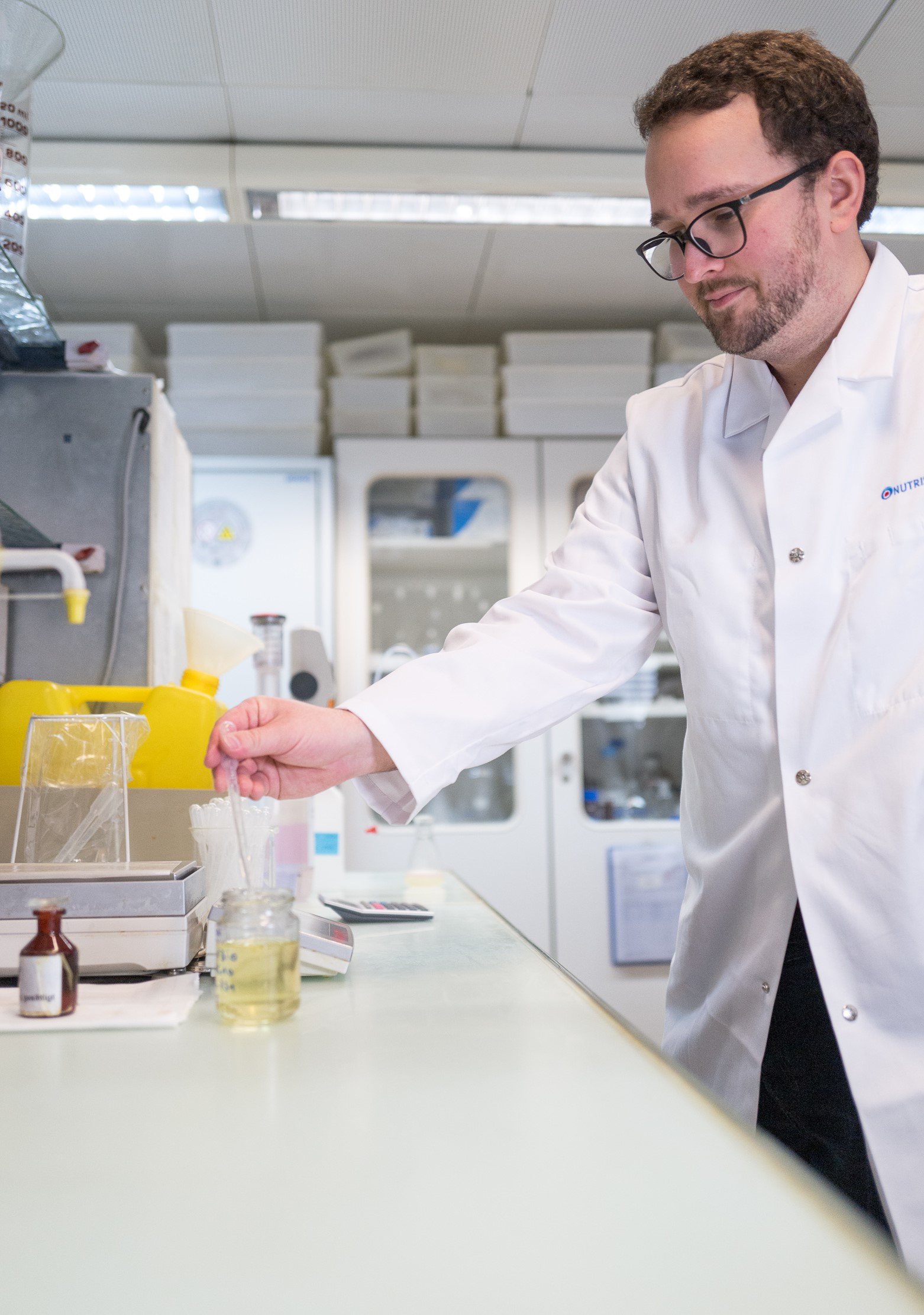Company profile
Taking contaminated oils from crude to quality
Virgin oils are popular with consumers and are considered to be healthy. However, they are often unsuitable for industrial food or nutraceutical applications. The Swiss company Nutriswiss has established particularly gentle refining processes to optimise the technological properties of fats and oils; they minimise both contaminants and any indication of oxidation to preserve nutrients and important fatty acids as much as possible.
Compounds such as polyunsaturated fatty acids make vegetable oils particularly sensitive to oxidation. As a consequence, attributes such as a low smoke point — owing to a high concentration of free fatty acids — as well as contaminants from cultivation and transport, mean that complex or extensive treatments are required to refine them. This in turn results in the risk of further contaminants being formed during processing.
Nutriswiss’s mission is to produce high quality functional oils. The ability to refine olive oil is an impressive example of what’s possible: demand far exceeds supply, so that great benefits can be derived from the processing of contaminated oils. In fact, most of the characteristics presented here apply equally to rapeseed oil or even fish oil.
Olive oil’s unsaturated fatty acids: strengths and weaknesses
Oleic acid is a significant contributor to the commercial success of olive oil and other similar products. This omega-9 fatty acid is thought to reduce the risk of heart disease, reduce cholesterol and may even have a role in cancer prevention. However, these beneficial properties also mean that contact with oxygen triggers decomposition. When it comes to refining olive oil, the challenge is to preserve its positive properties while eliminating oxidation products. These can be hydroperoxides and secondary degradation products such as ketones and aldehydes, which are accompanied by a rancid taste.
Even heavily contaminated olive oil can be processed so that it can be used in the food industry and not simply discarded. For this purpose, the content of these oxidation by-products and free fatty acids (FFAs) needs to be reduced significantly. These defects are caused by working with bruised or overripe fruit as well as mishandling during storage and transport. The same factors also influence oils obtained from first-press residues, such as pomace and lampante oil.
However, it’s not only oxidation that leads to undesirable compounds in the oil; pollutants can also be introduced from outside during cultivation, transport and storage. As a result, oilseeds and fruits such as olives from conventional sources are often already contaminated at harvest. Mineral oil residues (MOSH/MOAH), for example, can have different origins, including tyre abrasion or machine lubricating oil.

Neutralisation in these kinds of tanks is a modification step during fat and oil refining.
(Copyright: Nutriswiss)
Maritech® fucoidan is the world’s only high purity, certified organic fucoidan with global regulatory acceptance – including FDA notified GRAS and EU Novel Foods Approval.
The gentle way: mild refining
To deal with the contaminants in the oils, classic alkaline or physical refining processes take place at high temperatures, which favour the formation of process contaminants. These include 3-MCPD and glycidol, for which legal limits apply in the EU. Against this background, Nutriswiss balances the application of moderate process parameters with effective purification when using sensitive oils. Diligence, monitoring and the innovative combination of technical processes means that the refined product always shows measured values that are close to the low end of the detection limit — even with oils that are significantly impacted.
At Nutriswiss, crude oils are first examined to ascertain the optimal process sequence. The company’s own quality laboratory not only provides a detailed picture of the extent of contamination, but is also responsible for checking the final level of refinement.
Instead of using intensive processes for the removal of pesticides and MOSH/MOAH, the company relies on a physical treatment using modern distillation technology followed by mild deodorisation. In this way, the formation of process contaminants is minimised, whereas pesticides, MOSH/MOAH, polycyclic hydrocarbons (PAHs) and plasticisers such as DEHP are significantly reduced. At the same time, valuable ingredients are protected and yield losses are minimised.

State-of-the-art technology helps Nutriswiss to improve the key attributes of fats as much as possible. (Copyright: Nutriswiss)
Sustainable, responsible action
If you know how, oils that would previously have been discarded as waste can be safely refined into perfectly viable ingredients. The experts at Nutriswiss can also eliminate sensory losses owing to advanced oxidation. However, top priority is food safety. Because of their chemical structure, oils easily absorb contaminants from the environment. Preventing the formation of process contaminants while removing existing pollutants as much as possible requires a lot of experience and expertise. Nutriswiss has this at its disposal thanks to years of specialisation and state-of-the-art equipment.

The Nutriswiss laboratory team first compiles an inventory of any impurities when the raw materials are delivered to the Swiss plant; after refining, they compare the values and check the success of the process. (Copyright: Nutriswiss)
Customer’s publication
Copyright: Shutterstock/Dusan Zidar




